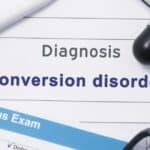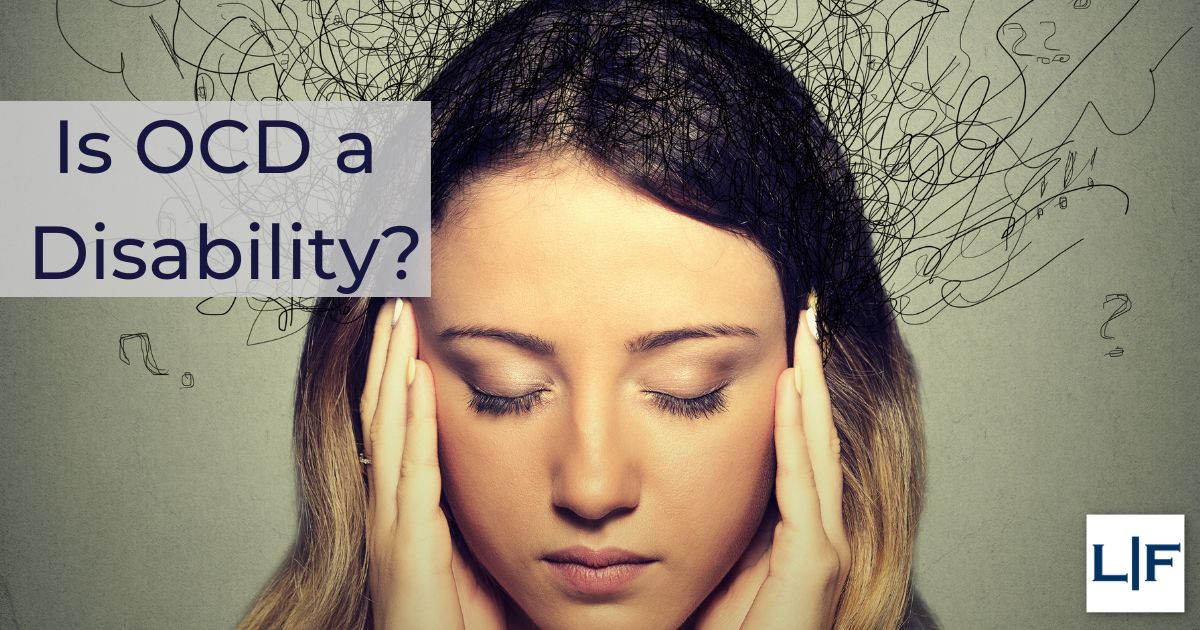What is OCD?
OCD a.k.a. Obsessive Compulsive Disorder affects an estimated one percent of the U.S. adult population, according to the National Institute of Mental Health (NIMH). Pop culture has trivialized and detracted from the seriousness of the condition, but for many people, obsessive compulsive disorder can cause severe limitations that affect every aspect of their lives.
Approximately half of these cases are a severe form of obsessive compulsive disorder, estimates the NIMH. If you have a disabling mental disorder such as obsessive compulsive disorder, you might be entitled to disability benefits. For help getting Social Security disability for an obsessive-compulsive disorder (OCD), call Lunn & Forro, PLLC for a free discussion with a disability lawyer: 888-966-6566.
Will obsessive compulsive disorder qualify me for disability benefits?
To qualify for Social Security disability benefits, you must have a mental or health condition that severely impedes your ability to engage in substantial gainful activity (SGA), or earn less than a certain amount of money each month. If your condition is only short-term or is not critical enough to impair your ability to work, then you will not be eligible for benefits.
The Social Security Administration (SSA) keeps a Listing of Impairments that details the conditions that the Administration assumes as disabling. When the claims examiner reviews a disability application, she will first look to this listing and see if the applicant’s condition is included.
OCD is one of the conditions on the list, under Section 12.06: Anxiety-related disorders. So, if your impairment meets the required level of severity (and you meet the other criteria discussed below), then the SSA will likely determine you as disabled.
What criteria is necessary to obtain disability benefits based on OCD?
The SSA evaluates OCD Section 12.06: Anxiety and obsessive-compulsive disorders. To meet the listing requirements, you must satisfy Requirement #1 as well as Requirement #2 or #3:
Requirement #1: You must provide medical documentation of:
- Involuntary, time-consuming preoccupation with intrusive unwanted thoughts; or
- Repetitive behaviors aimed at reducing anxiety
Requirement #2: Extreme limitation of one, or marked limitation of two of the following:
- Comprehending, recalling, and using information
- Social functioning
- Concentrating, persisting, or maintaining pace
- Adapting or managing oneself
Requirement #3: Evidence of:
- Treatment, therapy, support, or a structured environment that helps ease your signs and symptoms; and
- An inability to adjust to changes or new tasks
Am I automatically disqualified if my OCD does not meet the above criteria?
No. You may still be entitled to benefits even if your OCD does not match the criteria above. If you can prove to the SSA that your condition — or combination of conditions — legitimately impacts your ability to engage in SGA (“Substantial Gainful Activity”), then you may still be able to pass the application process.
We can review your claim and ensure you have enough evidence to support it.
What other criteria is necessary to obtain disability benefits?
You must be able to answer affirmatively to the following questions to qualify:
- Does your OCD match the above medical criteria or do you have a condition that significantly impairs your ability to engage in SGA?
- Does a doctor expect your condition to last a year or longer?
- Does your condition impair your ability to work and prevent you from adjusting to new work?
- Do you meet the work or financial requirements for the particular SSA disability program for which you are applying? (If you are applying for Social Security Disability Insurance benefits, you will need to have a certain number of work credits on your record. If you are applying for Supplemental Security Income benefits, your income and the value of your assets must fall below a certain threshold.)
What types of evidence do I need to prove my OCD disability claim?
Mental disorders such as OCD can be more challenging to prove than physical conditions because they are primarily subjective. There are few to no biological tests that prove most mental disorders on paper, e.g., OCD does not show up on a CT scan.
Therefore, to prove your disability to the SSA, you will need to submit comprehensive and up-to-date records from all your treating physicians, including your psychiatrist, psychologists, therapists, group therapy administrators, etc.
The SSA will look at all types of valid input that provides information about your condition and its effect on your life and ability to work. Observations and testimonies from your family, employer, coworkers, social worker, and others you routinely interact with that share how your obsessions and compulsions limit you can help to support your case.
A lack of sufficient records will result in denied benefits. We will help you gather the evidence that will be instrumental in supporting your case or appealing a denial.
Where can I find a Raleigh disability lawyer with experience handling OCD cases?
Our attorneys at Lunn & Forro, PLLC have devoted their entire practice to disability cases. We understand the ins and outs of Social Security disability laws, and are well versed in all types of cases, including OCD and other mental disorders. Our team can jump in and assist at any stage of the application process, from predetermining eligibility to appealing a denial, and any phase in between. We help people in Raleigh, throughout North Carolina and the surrounding areas fight for the disability benefits they have earned.
Let us help you get the benefits you need. Contact our office today for a free, no-obligation consultation: 888-966-6566
Related Posts

Can I Get Disability for Diabetes?
The short answer to the question is yes, there are people who receive Social Security disability benefits for diabetes. However, they do not get disability

Is Schizophrenia a Disability? – Social Security Disability Benefits
Schizophrenia is a severe mental illness that affects about 1 percent of the population. However, it tends to run in families so someone with a

Can You Get Disability for Conversion Disorder?
Conversion disorder is a mental illness that causes neurological symptoms, such as paralysis or hearing loss. It is one of several conditions that fall under

Getting Social Security Disability For a Stroke
Each year, approximately 800,000 Americans experience a stroke, reports the Centers for Disease Control and Prevention (CDC). Strokes are a leading cause of disability among
Getting Social Security Disability for a Mental Illness
There are various mental illnesses that can qualify someone for disability benefits. In fact, approximately one-third of disability beneficiaries received a mental disorder diagnosis in
Disability for Anxiety and Panic Attacks
Disability for anxiety and panic attacks is available to individuals who cannot work due to the severity of their symptoms. Panic disorders are not uncommon.
Is BPD a Disability?
Some people who suffer from Borderline Personality Disorder qualify for disability benefits. Personality disorders are characterized by unhealthy and rigid thoughts and behaviors that greatly
Is PTSD a Disability?
Post-traumatic stress disorder (PTSD), which can develop after exposure to an extremely traumatic event, is not uncommon. According to the Department of Veterans Affairs (VA),



